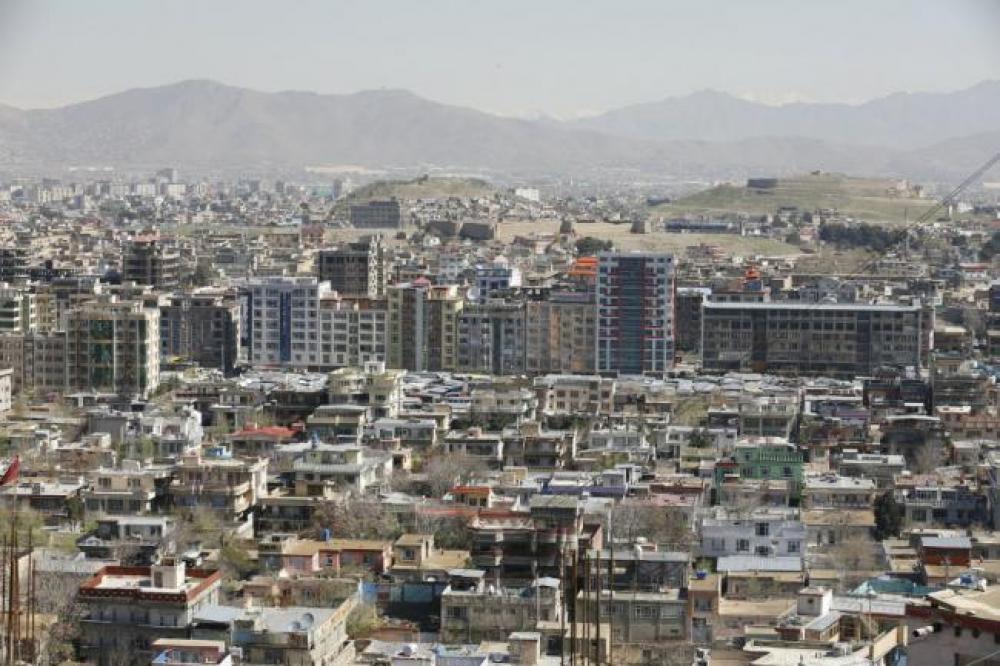Just Earth News | @justearthnews | 10 Jul 2018, 11:24 am Print

Washington: The US government has issued a travel advisory where it has asked its citizen to avoid traveling to Afghanistan.
The US State Department has put Level 4 advisory for Afghanistan and even asked citizens to 'Do Not Travel' to the south Asian nation.
In its advisory, the department said: "Travel to all areas of Afghanistan is unsafe because of high levels of kidnappings, hostage taking, suicide bombings, widespread military combat operations, landmines, and terrorist and insurgent attacks, including attacks using vehicle-borne or other improvised explosive devices (IEDs), suicide vests, and grenades. Attacks have targeted official Afghan and U.S. government convoys and facilities, foreign embassies, military installations, commercial entities, non-governmental organization (NGO) offices, hospitals, residential compounds, places of worship, restaurants, hotels, airports, and schools."
"Do not travel to Afghanistan due to crime, terrorism, civil unrest, and armed conflict," the advisory further said.
Afghanistan has witnessed several terrorist attacks in recent times, disrupting peace and normal life in the country.
Terror-hit Tuesday:
At least 12 people were killed as a suicide attack occurred in Afghanistan's eastern Nangarhar province on Tuesday, media reports said.
The attack left five people injured, reports said.
Attaullah Khogyani, the governor’s spokesman, told Pajhwok Afghan News the explosion took place in Khalis Family area in the limits of the sixth police district at around 10 am.
Full text of the advisory issued by the US State Department is given below:
"Do not travel to Afghanistan due to crime, terrorism, civil unrest, and armed conflict.
Travel to all areas of Afghanistan is unsafe because of high levels of kidnappings, hostage taking, suicide bombings, widespread military combat operations, landmines, and terrorist and insurgent attacks, including attacks using vehicle-borne or other improvised explosive devices (IEDs), suicide vests, and grenades. Attacks have targeted official Afghan and U.S. government convoys and facilities, foreign embassies, military installations, commercial entities, non-governmental organization (NGO) offices, hospitals, residential compounds, places of worship, restaurants, hotels, airports, and schools.
Terrorist groups continue plotting possible attacks in Afghanistan. Terrorists may attack with little or no warning, targeting tourist locations, transportation hubs, public gatherings, markets/shopping malls, and local government buildings.
The U.S. Embassy's ability to provide routine and emergency services to U.S. citizens in Afghanistan is severely limited, particularly outside of Kabul. Evacuation options from Afghanistan are extremely limited due to the lack of infrastructure, geographic constraints, and the volatile security situation.
Family members cannot accompany U.S. government employees who work in Afghanistan. Unofficial travel to Afghanistan by U.S. government employees and their family members is restricted and requires prior approval from the Department of State. U.S. Embassy personnel are restricted from traveling to all locations in Kabul except the U.S. Embassy and other U.S. government facilities unless there is a compelling U.S. government interest in permitting such travel that outweighs the risk. Additional security measures are needed for any U.S. government employee travel and movement through Afghanistan.
Due to risks to civil aviation operating within or in the vicinity of Afghanistan, the Federal Aviation Administration (FAA) has issued a Notice to Airmen (NOTAM) and/or a Special Federal Aviation Regulation (SFAR). For more information, U.S. citizens should consult the Federal Aviation Administration’s Prohibitions, Restrictions and Notices."
Image: UN website
- US official reacts to Elon Musk's remarks backing India's permanent UNSC seat
- Sri Lanka: 6.2 magnitude earthquake hits Island Nation, no casualty
- UN chief hails SE Asia for vital role ‘building bridges of understanding’
- India-Uzbekistan Synergy at the SCO
- Kazakhstan to host Astana International Forum in June to address key global challenges






